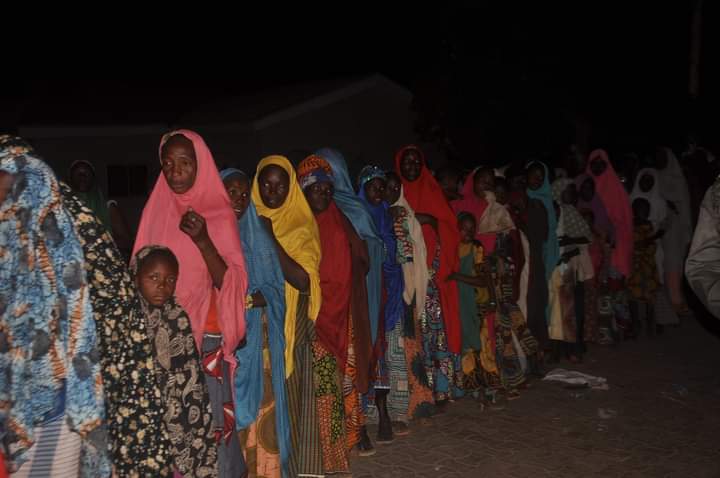A Coalition of Concerned Women in Leadership (CCWL) has embarked on a rally, advocating for implementation of 35 per cent affirmative action for women contesting for elective positions in 2023.
The National President of CCWL, Mrs Uduak Oludemi, made the call at a rally held at the Lagos State House of Assembly in Lagos on Friday.
The coalition under the auspices of Voice of Widows Foundation also went to the Lagos All Progressives Congress (APC) secretariat and Sen. Bola Ahmed Tinubu residence.
Out of the 109 senators in the National Assembly, only nine are women and only 27 out of the 360 members of the House of Representatives are women.
Oludemi said despite forming the bulk of voting population in the country, women representation still remained abysmally low in Nigeria’s politics.
She noted that women were still under-represented and obviously marginalised in democratisation in legislative and executive arms of government.
According to her, this trend flows from the national level, to state, down to local levels where few women take the lead in local government chairmanship and councillorship.
She said the group was presently seeking for increased women involvement in elective and appointive positions as enshrined in the National Gender Policy (NGP).
Oludemi said that the NGP should be adhered to, for fairness and equity.
“The National Gender Policy (NGP) has formulated a 35 per cent Affirmative Action (AA) in Nigeria since 2006.
“This policy demands that 35 per cent of women be involved in all governance processes.
“The NGP is recognised, but is not practiced as the structures and processes to use are not in place.”
Speaking, the National President, Voice of Widows Foundation, Safiya Ibrahim, urged political leaders to give widows the opportunity to also vie for leadership positions.
Also, the Lagos State Coordinator, Voice of Widows Foundation, Mrs Josephine Isigholo, said orphans and children of widows should be protected from being used as political thugs during elections.
Addressing the group, a lawmaker, Hon. Ganiyu Okanlanwon (Kosofe Constituency II), appreciated the group for coming out in a peaceful manner to make their requests known to the house.
Okanlawon, however, noted that Gov. Babajide Sanwo-Olu and the state assembly had always been appointing women for various leadership positions in the state.
“Women participation in elective and appointive positions is already evident in the state Ministries, Departments and Agencies, in the House of Assembly and entire governance of the state.
“However, your suggestions will be delivered to the appropriate authorities so we can be able to involve more women in the leadership positions.”
Similarly, the state Chairman of APC, Mr Cornelius Ojelabi, said that the party already had a gender-friendly policy.
Ojelabi, represented by his Chief of Staff, Mr Femi Oyedele, said the party had been advocating for more women to contest for positions right from its inception.
“APC is a party that has a gender-friendly policy, and we have been advocating for women to contest for elective positions right from the inception of the party.
“The party is also working tirelessly on ensuring that the 35 per cent inclusion policy is being adhered to.”
Ojelabi assured the group that they were on the right path and their requests would be communicated to the national body of the party.
The rally ended at Bourdillon in Ikoyi at the residence of Sen. Bola Ahmed Tinubu, APC presidential aspirant who was, however, unavoidably absent.
However, the group did not hesitate to leave a message for the APC national leader that the time for women to take their place in leadership was now, in reference to the 35 per cent inclusion policy.
Low participation of women in both elective and appointive positions had been a growing concern to many nations globally.
However, concerted efforts had been made by government and non -governmental organisations to increase the level of participation of women in politics in line with the declaration made at the fourth World Conference on women in Beijing, which advocated 30% affirmative action.
In Nigeria, the extant National Gender Policy (NGP) recommended 35 per cent affirmative action instead and sought for a more inclusive representation of women with at least 35 per cent of both elective political and appointive public service positions respectively.


